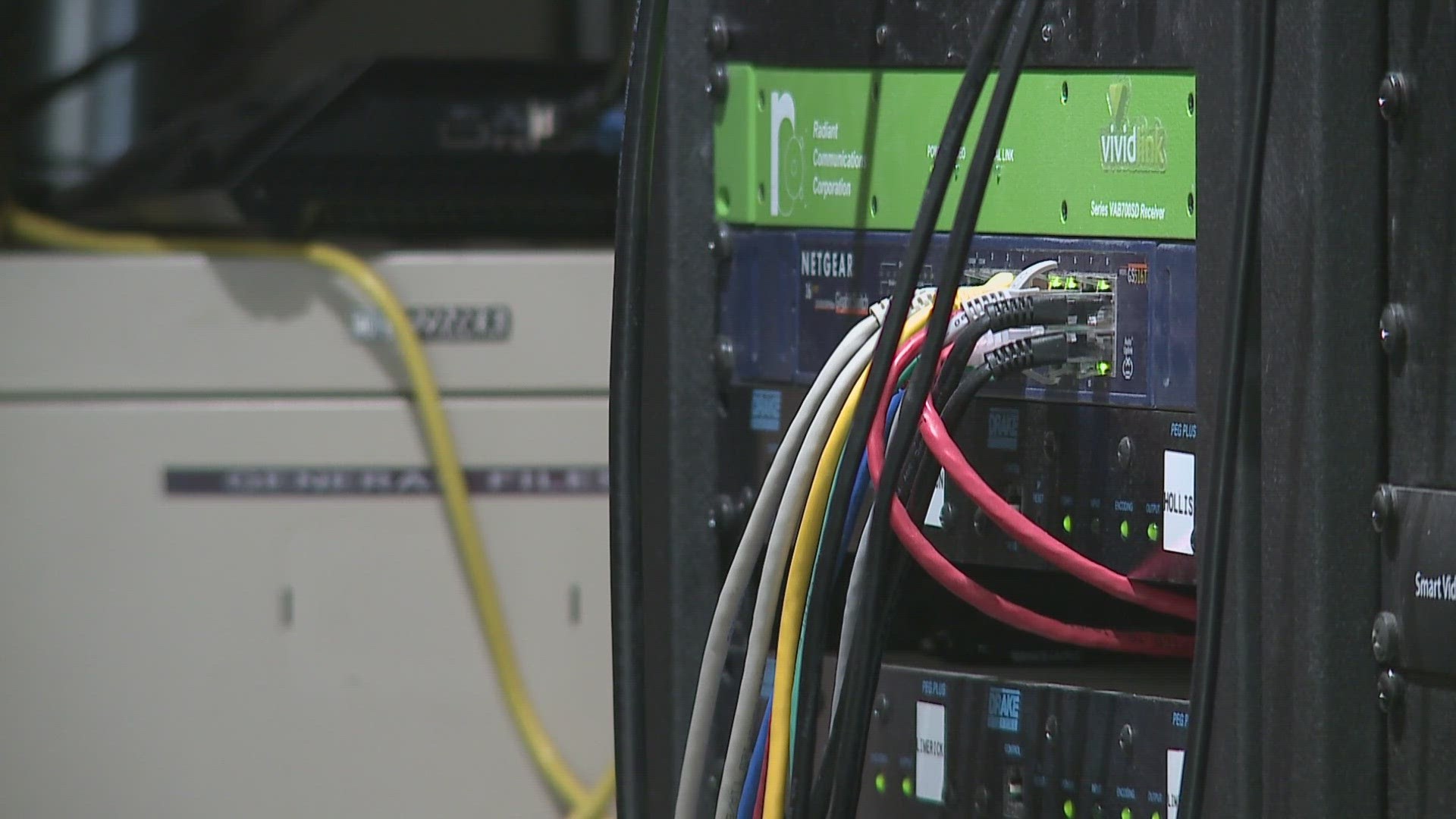HOLLIS, Maine — A highly polarizing bill is awaiting action by Gov. Janet Mills, and if passed, would require fees to be paid by internet video service providers that once only fell onto cable providers.
With the rise of streaming services and the decline of cable providers, a handful of media stakeholders and agencies are calling out for LD 1967, which if passed, would require internet video service providers who use public 'right of way' transmission lines to pay fees for municipal contract agreements.
"If you were to set up your facilities and equipment in a public park and sell your products, the town has a right to charge for that rental space," Tony Vigue said, who helped to draft the bill. "And as former legislator and historian Herb Adams said, 'it may be the dusty side of the road where the pole line goes, but it still belongs to the public.'"
When flipping through the channels, it's the behind-the-scenes work local public broadcasting stations do to make it possible for residents to tune into municipal meetings; and offer Mainers another faucet to public information.
"I almost like to think of it as a neighborhood TV in a way," Station Director Patrick Bonsant said, who runs Saco River Community Media. "Everyone wants to know where their tax dollars are going."
To make operations possible, oftentimes municipalities receive funding from the fees cable providers are required to pay to use public infrastructure; thanks to the 1984 Telecommunications Act.
Those in opposition to the bill have shared concerns that fees would lead to an increased burden on consumers. According to a recent survey conducted by the New Hampshire Institute of Politics, 69% of Mainers said they would oppose a 5% increase to watch community channels.
"Cable Customers already carry the burden of funding paid channels," Comcast representative Chris Hodgdon said in a public hearing on the bill. "If these channels need more funding, the legislature should consider other options."
Those in support of the bill said it would be a business move whether or not fees are passed down to consumers and could help secure further funding for public broadcasting systems; possibly changing how residents tune in to their communities.
"They take our signal and downgrade it, which is unacceptable to us. What happens at the grassroots level with everyday people matters as well," Bonsant said, "If the bill passes, we will be able to see our meetings the way they should be seen."

